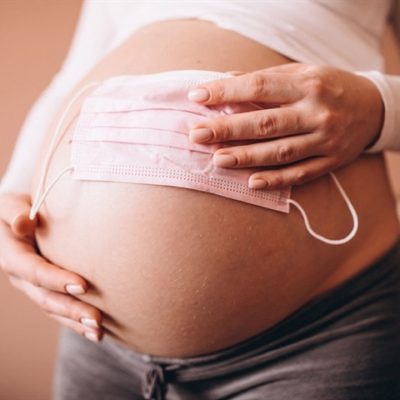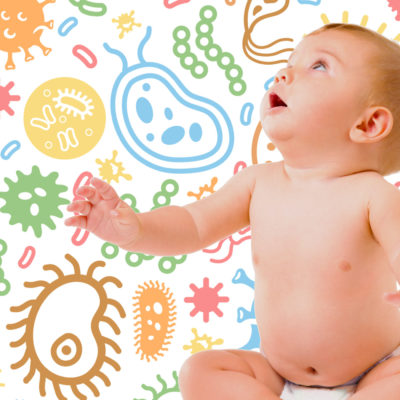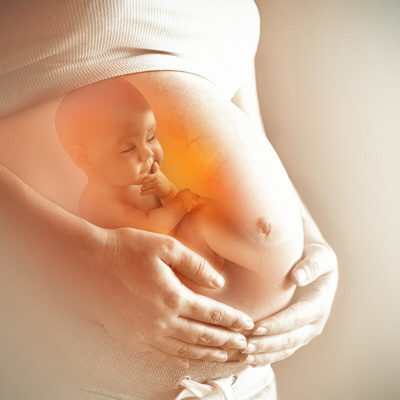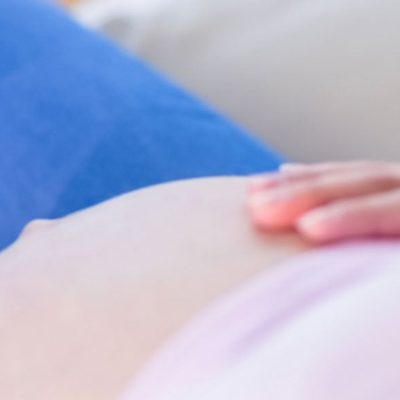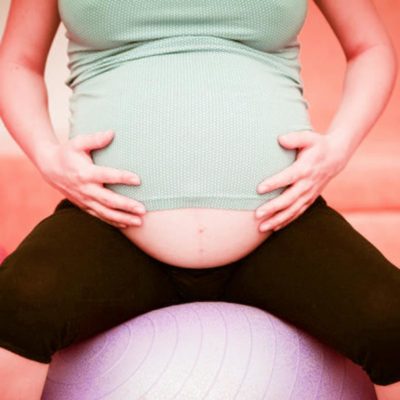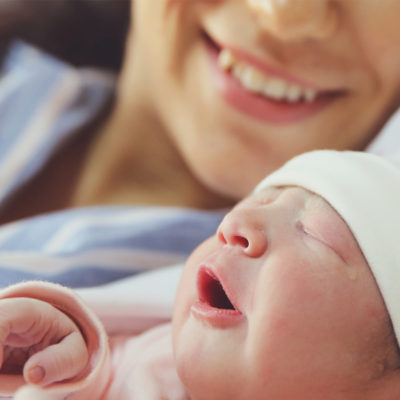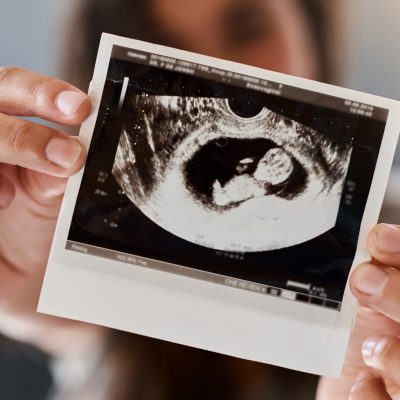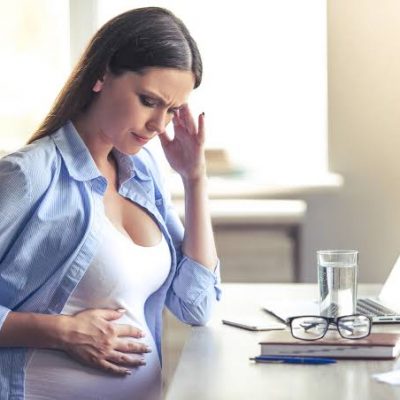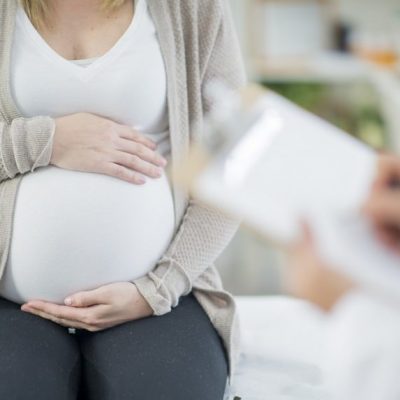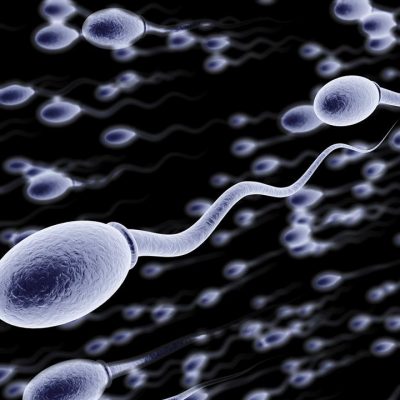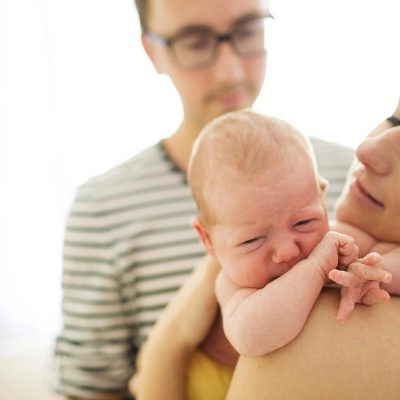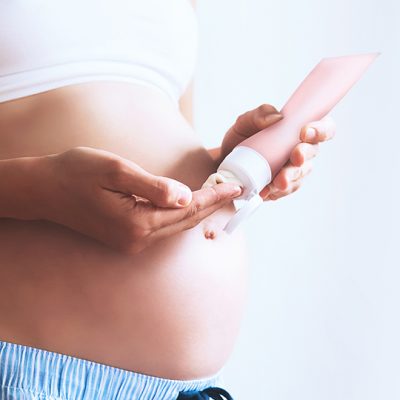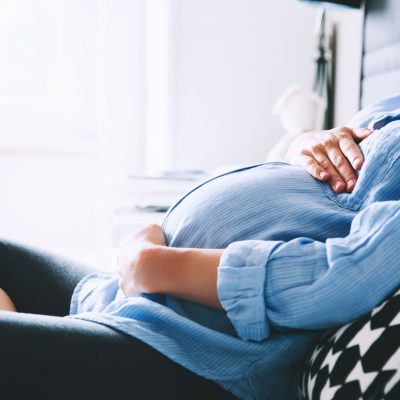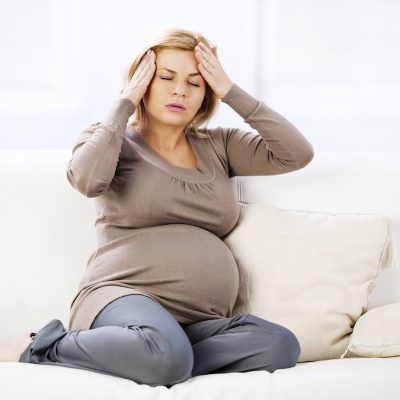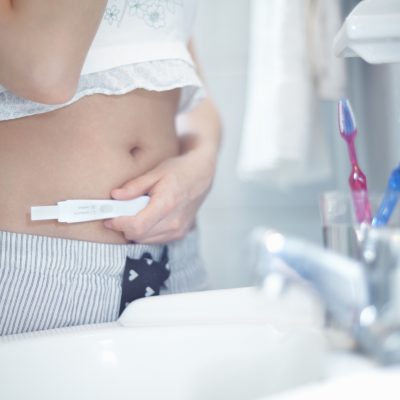The 21-year-old University of South Australia (UniSA) journalism student has lived with the condition for five years after first experiencing symptoms at age 16, but it has taken invasive laparoscopic surgery for an official diagnosis. Keyhole surgery is the standard option to reliably diagnose the three types of endometriosis (peritoneal, ovarian and deep infiltrating … [Read more...]
Fertility & Pregnancy News
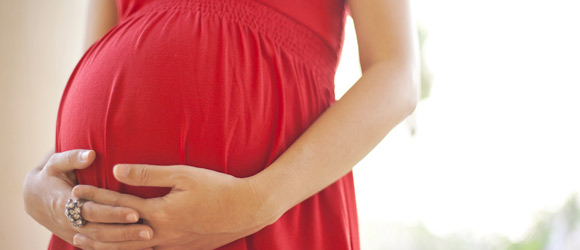
Researchers identify Proteins that Prevent COVID-19 Transmission through the Placenta
Researchers from Boston Medical Center's Maxwell Finland Laboratory for Infectious Diseases have identified properties in placenta tissue that may play an important role in preventing the transmission of COVID-19 from a mother with the virus to her fetus. The study results demonstrate that the COVID-19 virus universally invades the placenta in cases with and without … [Read more...]
Studying the Role of Microbes as Mediators of Stress
Both Proteobacteria and Lactobacillus are common infant gut microbes. "We discovered, for instance, that mother's chronic prenatal psychological distress was linked to increased abundances of Proteobacteria genera in infant microbiota. In addition, chronic psychological symptoms were connected to decreased abundances of Akkermansia genera which is considered to promote … [Read more...]
Prenatal Stress Associated with Infant Gut Microbes
Mother's chronic prenatal psychological distress and elevated hair cortisol concentrations are associated with gut microbiota composition of the infant, according to a new publication from the FinnBrain research project of the University of Turku, Finland. The results help to better understand how prenatal stress can be connected to infant growth and development. The study has … [Read more...]
Mild Thyroid Dysfunction Affects one in five women with a History of Miscarriage or Subfertility
Mild thyroid abnormalities affect up to one in five women with a history of miscarriage or subfertility which is a prolonged time span of trying to become pregnant, according to a new study published in the Endocrine Society's Journal of Clinical Endocrinology & Metabolism. Thyroid disorders are common in women of reproductive age. Although the prevalence of thyroid … [Read more...]
Extra choline may help pregnant women decrease negative effects of COVID-19 on their newborns
Pregnant women who take extra choline supplements may mitigate the negative impact that viral respiratory infections, including COVID-19, can have on their babies, according to a new study from researchers in the Departments of Psychiatry and Obstetrics and Gynecology at the University of Colorado Anschutz Medical Campus. Choline is a vitamin B nutrient found in various foods … [Read more...]
High-strain exercise linked to very early pregnancy loss
In women with a history of miscarriage, higher levels of physical activity were associated with a greater risk of subclinical, or very early, pregnancy loss, according to new research at the University of Massachusetts Amherst. Among women with confirmed pregnancy, physical activity and miscarriage risk were unrelated. "Risk related to physical activity is different for … [Read more...]
How maternal intestinal microbiota is involved in fetal development
All mammals, including humans, are colonized by billions of microbes. These mainly live in our intestines but can also be found in the respiratory tract, on the skin and in the urogenital tract. In the gastroenterology research group of the Department for BioMedical Reserarch (DBMR) at the University of Bern and at the University Hospital Bern, Inselspital, Stephanie … [Read more...]
Skin-to-skin ‘kangaroo care’ shows important benefits for premature babies
A world-first study led by Monash University has demonstrated significant benefits to a premature baby's heart and brain function when held by the parent in skin-to-skin contact. Parent-infant skin-to-skin care (SSC) or kangaroo care, started in the late 1970s in Columbia when incubators to keep babies warm were not available. It is now widely recognized as a beneficial … [Read more...]
Traditional vegetable diet lowers the risk of premature babies
It turns out we should follow our parent's advice when we're thinking about becoming parents ourselves, with a study finding eating the traditional 'three-vegies' before pregnancy lowers the risk of a premature birth. University of Queensland PhD candidate Dereje Gete analysed the diets of nearly 3500 women and found high consumption of carrots, cauliflower, … [Read more...]
Marijuana may impair female fertility
Female eggs exposed to THC, the psychoactive ingredient in marijuana, have an impaired ability to produce viable embryos, and are significantly less likely to result in a viable pregnancy, according to an animal study accepted for presentation at ENDO 2020, the Endocrine Society's annual meeting. Marijuana, or cannabis, is the most commonly used recreational drug by … [Read more...]
Parental diet affects sperm and health of future offspring
When parents eat low-protein or high-fat diets it can lead to metabolic disorders in their adult offspring. Now, an international team led by researchers at the RIKEN Cluster for Pioneering Research (CPR) have identified a key player and the molecular events underlying this phenomenon in mice. The Developmental Origins of Health and Disease is a school of thought that … [Read more...]
Does consuming fruit during pregnancy improve cognition in babies?
You may have heard of a 2016 study linking cognitive enhancement in babies with eating more fruit during pregnancy. But how strong is that link? That's the question scientists at the University of Alberta asked as they set out to verify the findings in a new study. "Our research followed up on results from the original CHILD Cohort Study, which found that fruit consumption … [Read more...]
Heatwave exposure linked to increased risk of preterm birth in California
More than just causing discomfort, regional heatwaves have been associated with a number of health risks, particularly for children and the elderly. A new study by researchers at University of California San Diego identified another important at-risk group: people who are pregnant and their unborn infants. The study, published February 11, 2020 in Environment International, … [Read more...]
Having Less Sex Linked to Earlier Menopause
Women who engage in sexual activity weekly or monthly have a lower risk of entering menopause early relative to those who report having some form of sex less than monthly, according to a new UCL study. The researchers observed that women, who reported engaging in sexual activity weekly, were 28% less likely to have experienced menopause at any given age than women who … [Read more...]
Real Risks Associated with Cannabis Exposure During Pregnancy
A new study from researchers at Western University and Queen's University definitively shows that regular exposure to THC, the main psychoactive ingredient in cannabis, during pregnancy has significant impact on placental and fetal development. With more than a year since the legalization of recreational cannabis in Canada, the effects of its use during pregnancy are only now … [Read more...]
Air Pollution Tied to Hypertension in Pregnant Women
WOMEN WHO LIVE NEAR major roadways appear more likely to develop high blood pressure during pregnancy, which can lead to serious and fatal complications if left unchecked, new federal research suggests. High blood pressure, or hypertension, is among the most common health issues women develop during pregnancy and, in its most severe forms, a leading cause of maternal death … [Read more...]
Placenta imaging method may aid diagnosis of pregnancy complications
A new imaging technique to track maternal blood flow to the placenta has the potential to help diagnose several common complications in early pregnancy, according to a study funded by the National Institutes of Health. Researchers used the technique, referred to as pseudo-continuous arterial spin labeling magnetic resonance imaging (pCASL MRI), to identify women with reduced … [Read more...]
Stress Linked with pregnancy: May affect baby’s sex, risk of preterm birth
It's becoming well established that maternal stress during pregnancy can affect fetal and child development as well as birth outcomes, and a new study from researchers at Columbia University Vagelos College of Physicians and Surgeons and NewYork-Presbyterian now identifies the types of physical and psychological stress that may matter most. The study was published online in the … [Read more...]
Therapeutic strategies for pregnant women with lupus
The disease, which has no cure, operates much like an allergic reaction gone awry: When activated, the immune system also attacks the body's healthy cells, tissues, and organs, causing inflammation and producing a host of symptoms that, though unique to each person, are universally called flares. A highly gender-biased disease, lupus afflicts females some nine times more than … [Read more...]
Researchers explain muscle loss with menopause
New University of Minnesota Medical School research is the first to show that estrogen is essential to maintaining muscle stem cell health. In an article recently published in Cell Reports, lead authors Dawn Lowe, PhD, Professor in the Department of Rehabilitation Medicine, Division of Physical Therapy and Rehabilitation Science Graduate Program, University of Minnesota … [Read more...]
Sperm may offer the uterus a ‘secret handshake’
Why does it take 200 million sperm to fertilize a single egg? One reason is that sperm, when they arrive in the uterus, face a bombardment by the immune system. Perhaps, says molecular anthropologist Pascal Gagneux, many are needed so that some will survive. On the other hand, there may be a benefit to culling so many sperm. "I'm a lonely zoologist in a medical … [Read more...]
Sleep and exercise affect new moms differently than new dads
Sleep and exercise are vital to the wellbeing of new parents, but these essentials affect new moms differently than new dads, according to researchers. In a study looking at the daily lives of new parents, a team led by Penn State researchers found that in general, getting more physical activity and more sleep from day to day was linked with more personal well-being, a … [Read more...]
Prenatal exposure to chemicals in personal care products may speed puberty in girls
Girls exposed to chemicals commonly found in toothpaste, makeup, soap and other personal care products before birth may hit puberty earlier, according to a new longitudinal study led by researchers at the University of California, Berkeley. The results, which were published Dec. 4 in the journal Human Reproduction, came from data collected as part of the Center for the … [Read more...]
Omega-3 fatty acids reduce the risk of premature birth
A new Cochrane Review published today has found that increasing the intake of omega-3 long-chain polyunsaturated fatty acids (LCPUFA) during pregnancy reduces the risk of premature births. Premature birth is the leading cause of death for children under 5 years old worldwide, accounting for close to one million deaths annually. Premature babies are at higher risk of a … [Read more...]
Single women freeze their eggs to avoid ‘panic parenting,’ study finds
Most single women who freeze their eggs for non-medical reasons are doing so to avoid 'panic parenting' (entering into unwise relationships to have a genetically-related child), a new study published in Human Fertility finds. The research also indicates that clinics need to be clearer about the likelihood of having a baby with these eggs in the future. Dr Kylie … [Read more...]
Stress during pregnancy increases risk of mood disorders for female offspring
High maternal levels of the stress hormone cortisol during pregnancy increase anxious and depressive-like behaviors in female offspring at the age of 2, reports a new study in Biological Psychiatry. The effect of elevated maternal cortisol on the negative offspring behavior appeared to result from patterns of stronger communication between brain regions important for sensory … [Read more...]
Australia-led global push to tackle PCOS – The principal cause of infertility in women
Australian led global guidelines for the diagnosis and treatment of the primary cause of infertility in women will be published simultaneously in three international journals, supported by a suite of health professional and patient resources to improve health outcomes for women with PCOS. Polycystic Ovary Syndrome (PCOS) affects up to 13% of women of reproductive age in … [Read more...]
Blood sample breakthrough good news for pregnant women
A wide range of fetal genetic abnormalities could soon be detected in early pregnancy thanks to a world-first study led by University of South Australia researchers using lab-on-a-chip, non-invasive technology. Biomedical engineers Dr Marnie Winter and Professor Benjamin Thierry from UniSA's Future Industries Institute (FII) and the ARC Centre of Excellence in Convergent … [Read more...]
Pregnancies in women with rheumatoid arthritis linked to premature delivery and low birth weight
No adverse outcomes reported for mothers with rheumatoid arthritis except premature delivery. The results of a study presented today at the Annual European Congress of Rheumatology (EULAR 2018) demonstrate that pregnancies in women with rheumatoid arthritis are associated with premature delivery and low birth weight. Rheumatoid arthritis (RA) is a chronic inflammatory … [Read more...]
- « Previous Page
- 1
- 2
- 3
- 4
- 5
- …
- 41
- Next Page »

